Special Report: The lonely existence of lepers
- The existence of lepers has been neglected and forgotten in Nigeria
- Leprosy is curable and can also be prevented
- Leprosy is genetic, contagious and dangerous
"I was not born this way. There is no leprosy in my family. I just started feeling sick and was told it is leprosy," Saidu told Legit.ng.
"At a time I started having a numb feeling in my fingers, like there is no blood in there and suddenly my skin became white. As you can see I am naturally a dark man and I started becoming oyibo (fair skin). I really don't understand so I stopped rubbing cream," he continued.
Leprosy (Hansen’s Disease) is a disease that affects the skin, limbs and also the nerves. It is basically caused by germs which originate in dirty surroundings and unclean water. Lack of proper nutrients or malnourishment can also lead to leprosy.
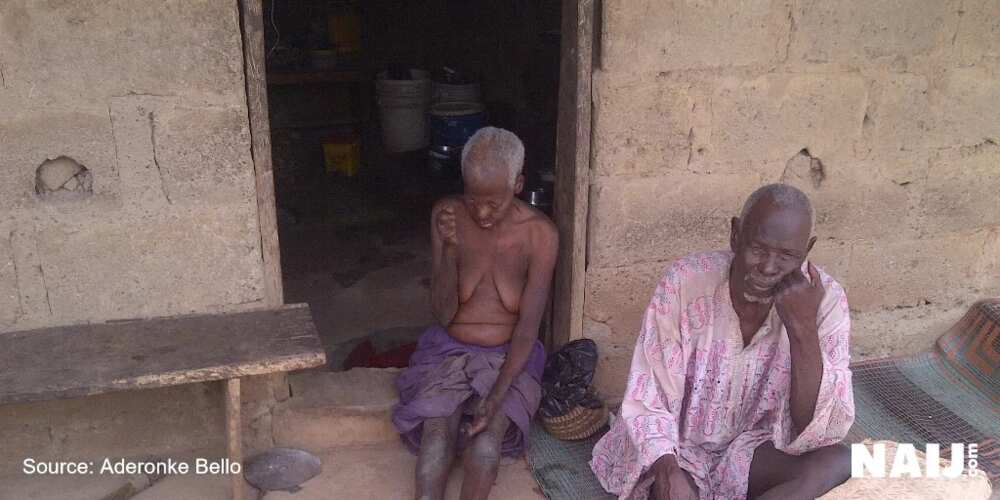
PAY ATTENTION: Listen to the top radio stations on Naij Radio App
It is caused by a type of bacteria called mycobacterium leprae which multiplies and grows slowly over a period between five and 20 years.
It is a contagious and an airborne disease which can be transmitted through coughing and sneezing, and if inhaled by another person can be infectious especially by people with untreated leprosy. However, treated patients do not spread the illness and it is not hereditary.
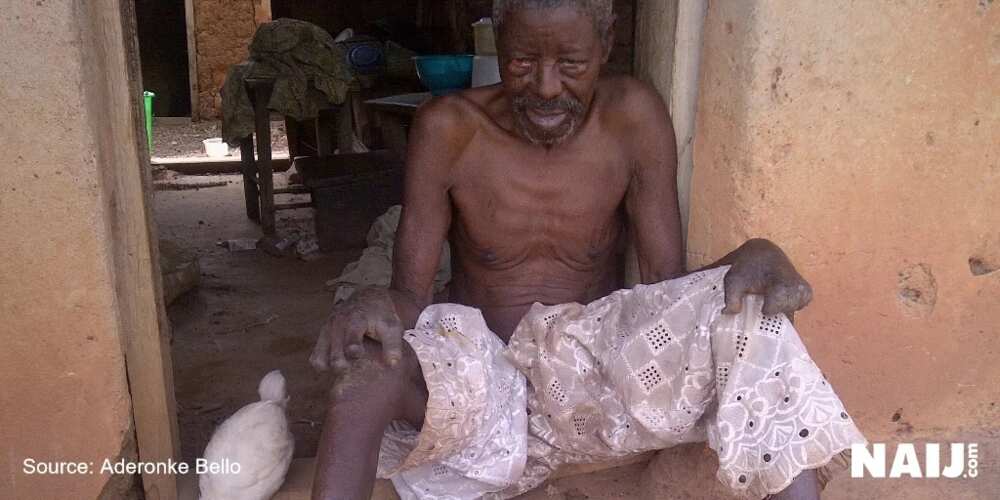
Growing up in Northern Kaduna in Nigeria was fun for Saidu Bako. He would wake up early in the morning to say his prayers before heading to the farm with his father.
He had wanted to become a welder but due to the poverty surrounding him and lack of welding apprenticeships, he could neither get an education nor learn welding.
"My father is a poor farmer; we do not have enough money. I always go to the farm before one of my uncles took me from the village to the town to learn tailoring. My uncle was a merchant who sells fabrics in the Kaduna city. I followed him with joy to the city."
He learnt tailoring but was unable to practice the trade due to the effects of untreated leprosy disease. Saidu now begs for alms to feed his family.
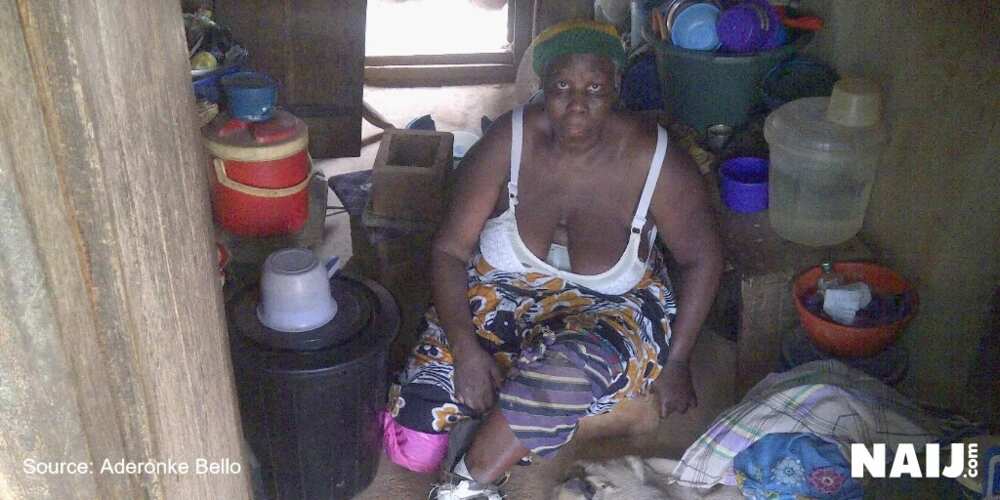
Jacob Ifeanyi told Legit.ng: "I use prosthetic donated to me by a good samaritan to help me walk. Leprosy has yanked my leg off and I could no longer walk. It is really sad as I did not discover this earlier."
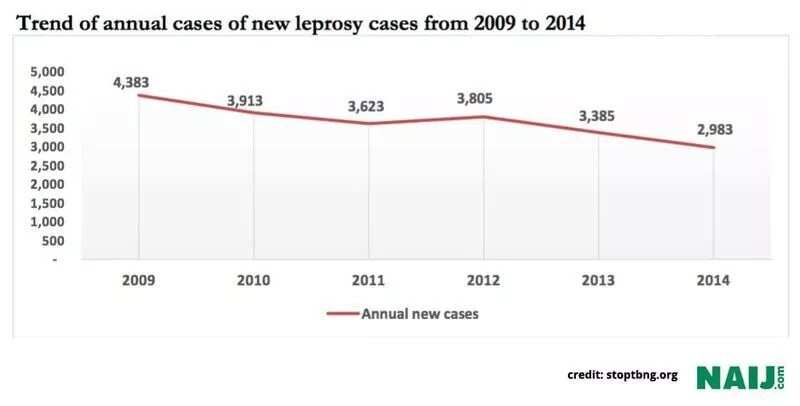
Leprosy in Nigeria
Lagos and Kano states have been graded as the Nigerian states with the highest numbers of leprosy cases. The disease is as old as time, with no vaccine in sight.
This is followed by Cross River, Abia, and Kaduna states. According to research, the prevalence of leprosy has declined in Nigeria from 2008 to the present but yet there is no awareness of its existence and cautionary measures expected to be taken.
Lepers are stigmatised and confined to colonies where they all live together. Most of these colonies lack adequate healthcare and basic needs for normal existence.
Like the Igbos, they isolate the lepers from the society and see them as the living dead.
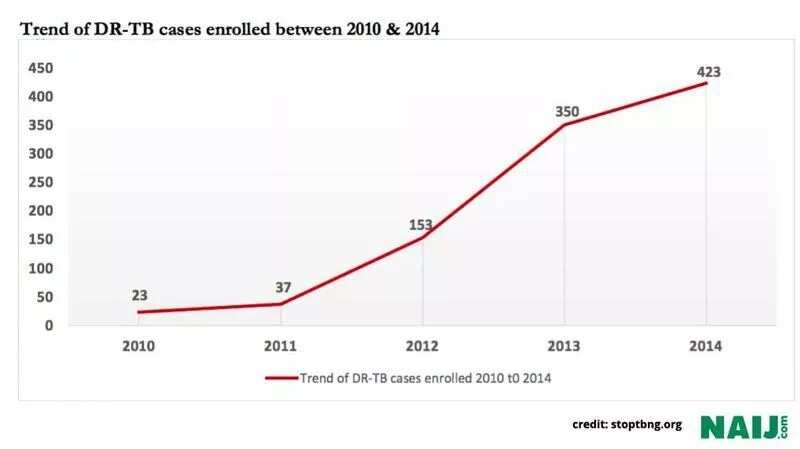
The World Health Organization (WHO) has developed elimination strategies based on the increasing geographical coverage of Multi Drug Therapy (MDT) and patients' access to treatment.
Meanwhile, Nigeria has adapted the global elimination target with strategies based on early case finding, provision of MDT to all detected cases, ensuring case holding and the integration of leprosy services into general health care services. (FMOH, 2008a).
The national elimination target was achieved at the end of 1998 and 2007 respectively, and all the states in Nigeria except Taraba state attained the leprosy elimination target, according to www.ncbi.nlm.nih.gov.
The Nigerian government pay some of these people but most were allegedly sidelined based on who knows who as said by some aggrieved non-recipients.
Sometime in January this year, some lepers in Ogun state planned to invade the local government in protest at the non-payment of their allowances.
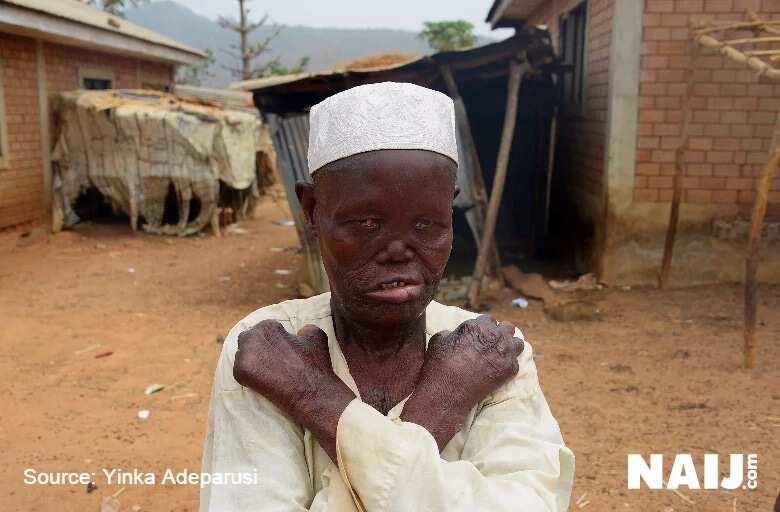
Colony
There are several colonies for lepers across the nation, many of which were built by Christian missionaries years ago. Most are now abandoned and the few existing ones lack basic healthcare, food, clothes and many of the necessary facilities.
Many of the occupants are crying to the federal government to help them in the provision of means that will allow them access to basic amenities as citizens of Nigeria.
Along Ore-Benin highway there are some lepers who live in the bushes, who come out often to beg passer-bys and travellers for alms to enable them eat.
They get married, have kids who grow up with barely no access to basic infrastructures.
Oke-Igbala, Uzuakoli, Ossiomo, Itu, and Gandu Leprosium centres are some of the most popular in Nigeria. You may learn more on the detailed history of leprosy cures in Nigeria here.
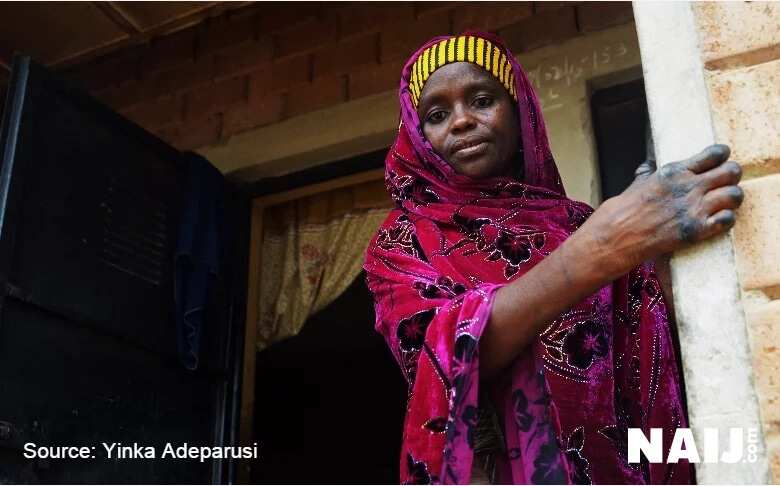
Grouse
People living with leprosy have lamented their grouse and complained of being abandoned on the outskirts of the town without any adequate or proper care.
Due to their deformities many of them can no longer get decent jobs.
"I have been in the colony for 30 years, government did not do anything for us. We feed from crumbs, we beg on the road and sometimes some of us have been kidnapped. I have two children but one died when there is no one to take care of her. I don't have hands," Joke told Legit.ng.
"We are hungry, we are poor and we need help, people think we are something else and useless human being," Michael said from the Itu colony in Akwa Ibom state.
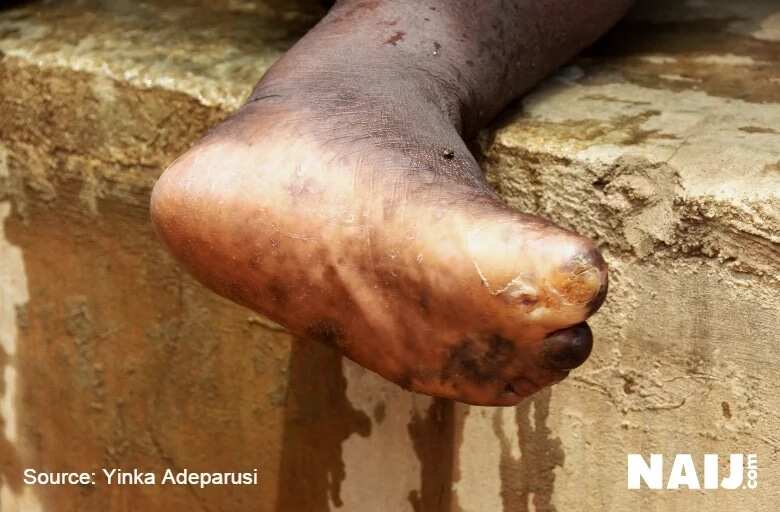
Many of the affected people cannot even blink their eyes as many need the aid of sunglasses to protect their eyes from the direct glare of sunshine.
The chairman of the lepers association in the FCT, Abuja in a chat with Legit.ng, said they are suffering and hungry:
“My name Ali Isah Chief of leprosy FCT chapter. Since they brought us here like 25 years ago some of the NGOs, missionary and Islamic bodies take care of us. Government didn’t do anything, but these people (NGOs) give us slippers and clothes. After that the time they bring capital to Abuja we are suffering in Abuja. At least they can give them allowances monthly; we have problems."
Shuaibu Abu continued: “As you see me like this I am afraid so that something will not enter my eyes; my short limbs are not enough to guide my eyes not even a cap. I need help; I need googles to be supplied to me and the rest of the people,” he told Legit.ng in Hausa language.
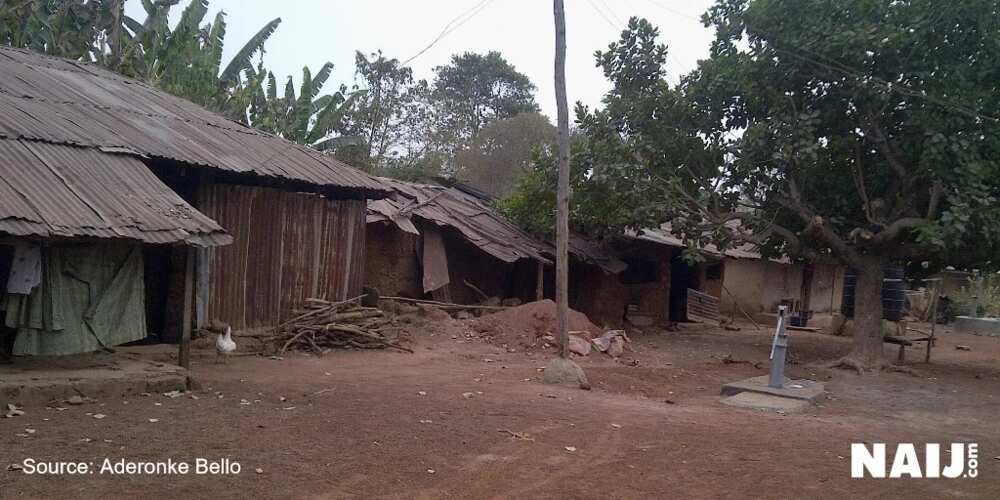
Maternal deaths
A lot of maternal deaths are recorded in leprosiums across the nation. Research shows that many pregnant women lost their lives because of the lack of midwives.
Some complained of the lack of healthcare facilities while some died in pregnancy due to the lack of proper check-ups, necessary diets, advice and medications that ought to be taken by pregnant women.
Watch the video below:
“I lost my second wife when she was pregnant with her second child. She woke up in the middle of the night and we could not get her to town. No light in our village and no means of transportation, I watched as life went out of her,” Baba Kaura told Legit.ng.
A nurse attached to one of the leprosiums in Nigeria told Legit.ng that they do not have any drugs to give to the lepers:
“Not even paracetamol, it is as bad as the fact folic acids is not in stock for pregnant women not to talk of multivitamins and other food supplements and if you ask the government officials they will tell you they are coming. Our files of request are still lying there,” the source explained and pleaded anonymity for the fear of the sack as she is not authorised to speak to the press.
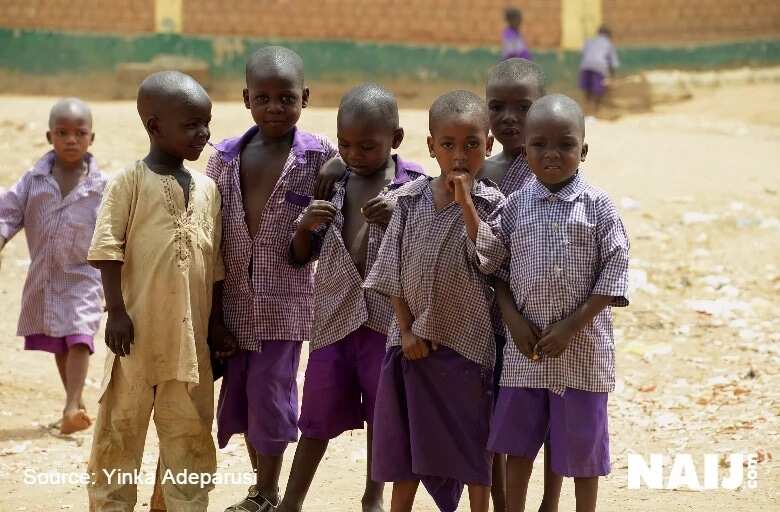
Children
Many of the children do not have enough access to basic education, and some can barely respond to "how are you"? After interaction with some of the children in Abuja, they only speak Hausa in their school. No structure and no importance is attached to educating in the nation's lingua franca - English, to enhance their opportunities and prospects both nationally and globally.
"Some of them are in school and we don’t have any school fees and other school materials. Government should come and tell us what they want to do for us.
“As we are not educated we want our children to go to school so they can have a better future than our own," Ali added.
The children are also exposed to the risk of contracting this illness from infectious carriers due to neglect and lack of adequate care and education.
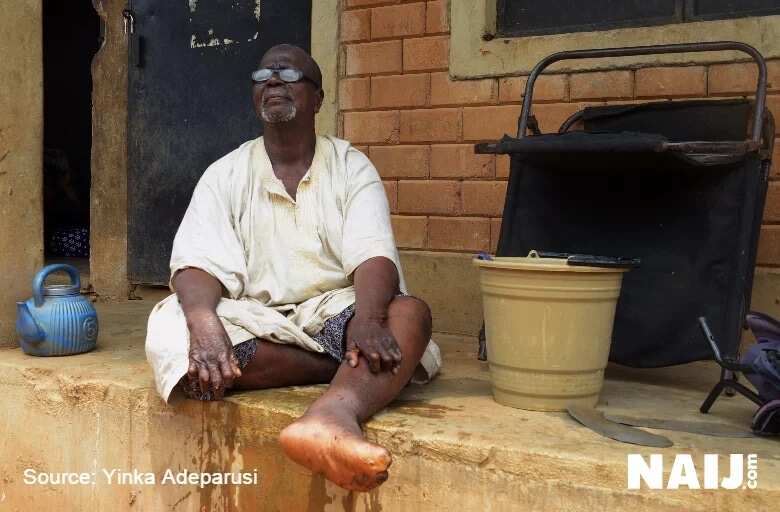
The forgotten
“We don’t want to go and beg anybody. When we go out to beg at the area even the environmental board arrest us so we want monthly allowance for each one of them.”
“Leprosy doctor, we need allowances because we cannot work because of our deformity, also we need children education. Those are the basic things we need from the government,” Ali Isah told Legit.ng.
Contrary to the issue, some of those in Oko-Oba straight leprosium get allowances from the government, but it doesn’t go round them all and is inadequate.
“Lagos state government has given us small money to do business. Like me I sell wrappers, tv in the market in Minna market. I go and sell to people carry my things to the market here and go back to Lagos,” Abdullahi Mohammed, a leper based in Lagos, told Legit.ng.
Many have been confined to the bush, abandoned there to die as they believe that leprosy is a curse. Some reportedly committed suicide while some died of starvation.
Research shows that only 25% of lepers get the federal government allowance, while others feed on crumbs and gifts from humanitarian organisations. Some, however, resort to begging for alms.
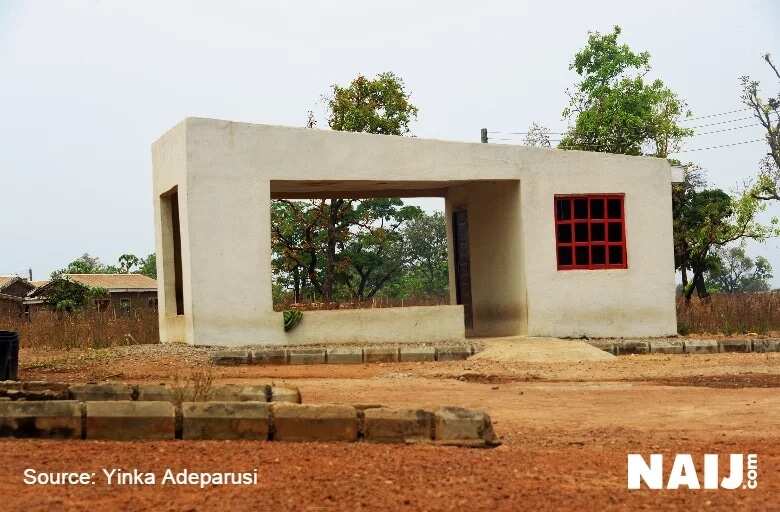
The leprosy mission
The leprosy mission in Nigeria is a non-governmental organisation that takes care of lepers in different states of the federation. They work with some government agencies in curbing the disease with the provisions of necessary items like footwear, ulcer care shade, foods and drugs needed at all times.
In a chat with Legit.ng, a national director of the organisation, Dr. Moses Onoh said: "We partner with the federal government to address the key issues which is transmission and disability and the issue of stigmatization.
"We have mobilised people, screen people. Disabilities that people suffer are not in themselves leprosy it is the implications of leprosy. We make the disables functions and use their limbs well."
Medicals
There's a massive shortage of drugs in some centres with medical facilities, while most do not have any medical facilities and are left to die.
“If you go to hospital they sometimes complain there is no medicine and asked us to go and buy medicine and we don’t have money then we will die,” Joke told Legit.ng.
On a visit to the Alheri leprosium in Abuja, a woman sat under a tree at the village dying of an unknown illness. The clinic at the place is empty and there is no sign of any drugs or facilities. The health workers refused to speak to the press.
Speaking from Sokoto, Haliru said they have selected people who get allowances from the government and he accused officials of corruption:
"See these people don't give us all we need; they will only select few people to help and give allowance to and pocket the rest."
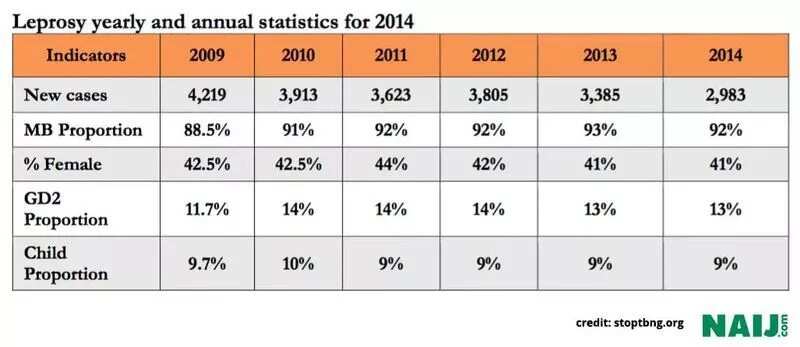
At the Oke-Igbala colony there is not a single health care facility in sight. The terrible stench of human waste filled the atmosphere. Some of the lepers have severely restricted mobility, and hence have to urinate on their body and pass faeces around the place.
Meanwhile, there are young children growing up within this unhealthy vicinity.
“I am battling with leprosy. It started since 1954. I got here on the 25 of May 1954 and since then I have been living in poverty and suffering in this illness. Secondly we have problems; there is no food and money the government doesn't give a damn about us to help us but we rely on God.
"Of all the other leprosiums here is the worst of them," Oni Bola, a resident of the Oke-Igbala leprosium told Legit.ng.
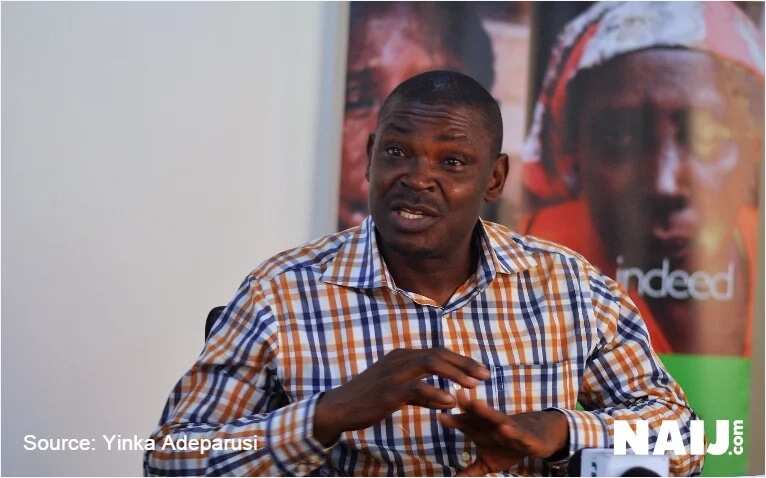
Reactions
In a chat with Legit.ng, Dr. Josephine Okechukwu of the National Tuberculosis and Leprosy Control Programme said that the government is helping:
"If you are sick go to the hospital, but they cannot say they don't have drugs, but it is not every drugs that we can provide, e.g you cannot go there for surgery. We set up that place for them, government build the schools and sure you saw it and it is free."
Shehu Tureta, an official of leprosy control services in Sokoto state said there is a single colony in the state named Gandu village. It houses 173 registered people who get N9,000 allowances every month with vocational training.
"The government is supporting them and we give monthly allowance of 9,000 apart from the trainings. Those who are registered get the payment schedule apart from vocation training," he told Legit.ng.
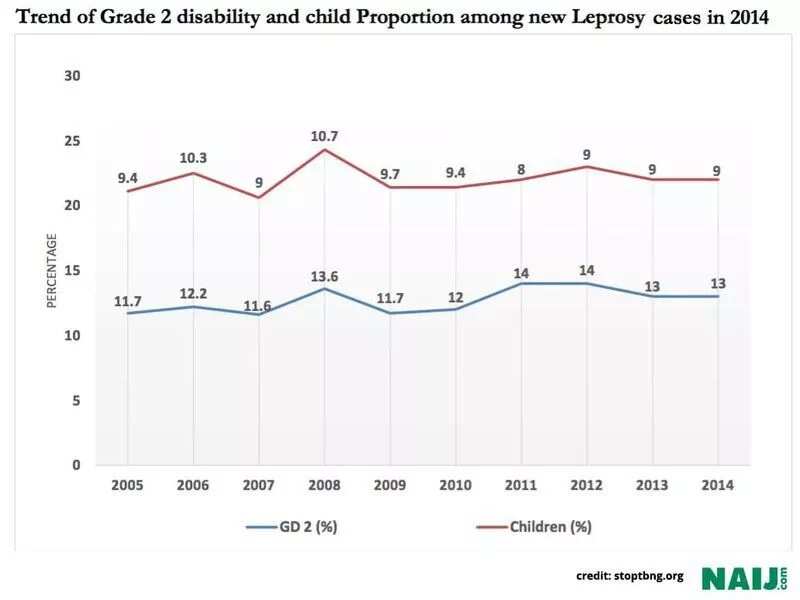
Speaking to the press at the World Leprosy Day earlier in the month, the director of family health at the ministry, Dr Wapada Balami, who represented Prof. Isaac Oyewole, the health minister, said stigma and discrimination is a major problem facing these people.
He added that the federal government has developed a national policy on strategic plans from 2016-2020 on leprosy.
“This ancient disease has caused so much pains to humans with about 3,000 new cases every year and more worrisome is the fact that it’s new manifestation also affects children and this can be tied to socio-economic response and healthcare challenges.
“Nigeria has developed a national policy on strategic plan which includes reaching the unreached, combating stigma and discrimination, expidite partnership, ensuring that treatment is conclusive and availability of healthcare services.”
Saidu is one of the people living with the effects of leprosy: "Well, I cannot question God, still here living better than the dead, but I believe a day will come when the lawmakers will put us into the Nigerian law and we will live a good life."
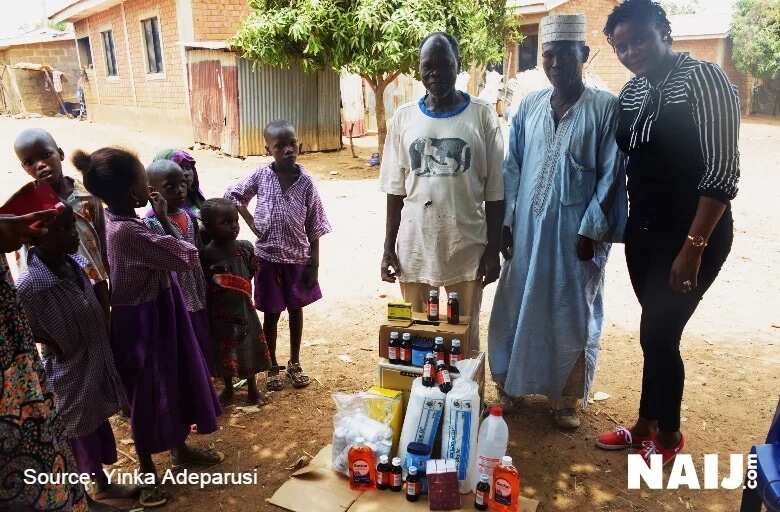
This article was researched and written by the award-winning journalist, Aderonke Bello. She is an associate editor and the head of the sports desk at Legit.ng.
Her Twitter handle is @Aderonkew
Source: Legit.ng
